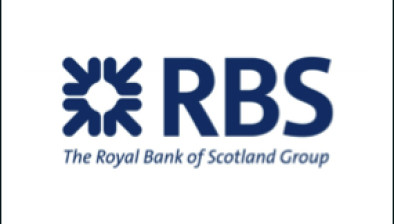RBS: Hiring activity increases across Scotland at start of 2021
January data highlighted an improvement in hiring activity across Scotland, according to the latest Royal Bank of Scotland Report on Jobs.

Permanent placements rose for the first time in a year, while temp billings increased for the fifth straight month. The latest expansions were only mild, but were nonetheless a stark contrast to the unprecedented downturns seen last spring.
Meanwhile, candidate availability rose further, with panellists attributing the latest upturn to redundancies, although the rates of increase slowed noticeably on the month. Upwards pay pressures persisted into the new year, as highlighted by further rises in starting pay. That said, both salaries and temp wages increased at softer rates compared to December.
Permanent staff appointments across Scotland rose during January, thereby ending an eleven-month sequence of decline. Firms, particularly in the IT & Computing sector, had resumed hiring efforts amid improved market conditions, according to survey respondents. That said, the rate of increase was modest overall.
Nonetheless, trends between Scotland and the UK diverged during January, as a renewed downturn in placements was recorded at the national level.
The upturn in temp billings across Scotland continued into 2021. Though strong, the rate of increase slowed noticeably from that seen at the end of last year. Respondents noted that firms in some sectors had cut back on hiring due to lockdown measures.
Furthermore, the latest expansion was slower than that seen at the UK level.
Recruiters across Scotland recorded another rise in permanent staff supply during the first month of 2021. Anecdotal evidence attributed the latest upturn to COVID-19 related redundancies, leading to a higher number of candidates searching for work. The rate of increase, although sharp, was the slowest in the current eight-month sequence of rising candidate availability.
Permanent candidate numbers also rose at the UK level during January, albeit at a slower pace than seen in Scotland.
A tenth successive monthly increase in the availability of temporary candidates across Scotland was recorded during January. According to panellists, COVID-19 related lay-offs had resulted in a greater number of job seekers. The latest increase in temp staff supply was the slowest in the aforementioned sequence and notably softer than those recorded in the middle of last year, but nonetheless sharp overall.
A second consecutive monthly increase in salaries awarded to permanent new joiners across Scotland was recorded in January. The back-to-back rise ended an eight-month period of falling pay which began last April. The rate of inflation slowed on the month and remained subdued in the context of historical data, however. Trends between Scotland and the UK diverged in January, as permanent starters’ salaries declined at the national level.
Average hourly pay rates for short-term staff across Scotland rose again in January. The rate of increase slowed from that seen in December, but was nonetheless solid and in line with the series long-run average. As was the case for starting salaries, data for the UK highlighted downward pressure on temp pay in January, with wages falling marginally overall.
Recruiters across Scotland signalled another monthly decrease in permanent vacancies during January. The rate of decline eased for the ninth straight month, however, and was the slowest since last March.
January data highlighted a further rise in temp staff demand across Scotland, extending the current sequence of growth to four months. That said, the rate of increase slowed to only a modest pace and was much weaker than the series historical trend.
Sebastian Burnside, chief economist at RBS, said: “Scotland’s job market posted a good performance at the start of the year, with hiring activity rising for both permanent and temporary staff. The rates of increase were only mild, but still pointed to a solid improvement from the substantial reductions seen during the spring of 2020. The upturn in permanent staff appointments was also a marked contrast to the decline recorded across the UK as a whole during January.
“With more candidates placed in roles, the supply of staff increased at a slower pace, although there were still reports that redundancies were driving the net increase in job seekers. Although conditions seem to be improving, the labour market is not out of the woods yet, with plenty of lost ground to make up. Nonetheless, tentative steps towards a recovery, despite stricter lockdown measures, is welcome news.”










